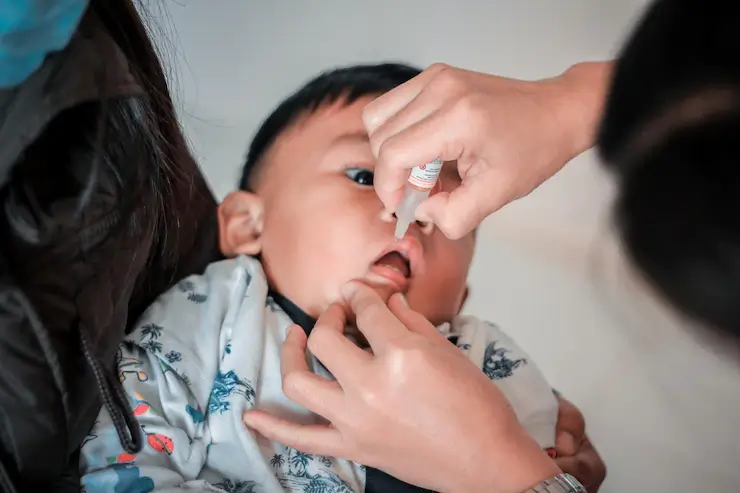By Valéria Credidio – Ascom/LAIS
Even though Brazil has been polio-free since 1994, the country is at risk for the disease, according to an alert issued by the World Health Organization. The reappearance of the disease, which affects mostly children, has as its main cause the low demand for the vaccine, which can be found throughout the public health system.
According to a survey conducted by FioCruz, despite the severity of the consequences caused by polio, Brazil has not met the goal of 95% of the target audience vaccinated since 2015, a necessary level for the population to be considered protected against the disease. In 2021, the percentage of vaccinated children reached 67%, with the three initial doses, which are administered during the first year of life. This percentage is even lower when it comes to the booster dose, not exceeding 52%.
In order to change this picture, starting on Monday, August 8th, another vaccination campaign against polio, an acute infectious disease caused by the wild poliovirus, begins nationwide. It can cause from symptoms like those of a common cold to serious problems in the nervous system, such as irreversible paralysis, especially in children under five years of age.
RN More Vaccine In Rio Grande do Norte, the RN Mais Vaccina platform will help manage the entire immunization process of the target population. According to the same parameters already in use, with the platform it will be possible to control the allocation of each location, the quantities distributed, in addition to controlling the immunization process.
The RN Mais Vacina is the platform created by the Health Technological Innovation Laboratory (LAIS/UFRN) that allows the tracking of the vaccine, from its receipt at the State Cold Chain Central Office to its application in the vaccine room in an intuitive and accessible web interface. It has data crossing that identifies incidents, generates alerts and intelligent reports focused on the experience of the citizen and health professional.
For the whole process to be followed up, it is necessary that children up to four years old, who are the target public of the campaign, are registered as dependents in the RN Mais Vacina. The registration needs to be done by the child’s parents or legal guardians. But beware, the registration of the responsible adult is required for the child to be entered into the system.
According to a survey carried out on the platform itself, less than 50% of the public of the campaign are registered on the RN Mais Vaccina. “With the registration, health managers will have the necessary information to plan and manage the process of immunization of children throughout the state,” said the executive director of LAIS, Ricardo Valentim.





